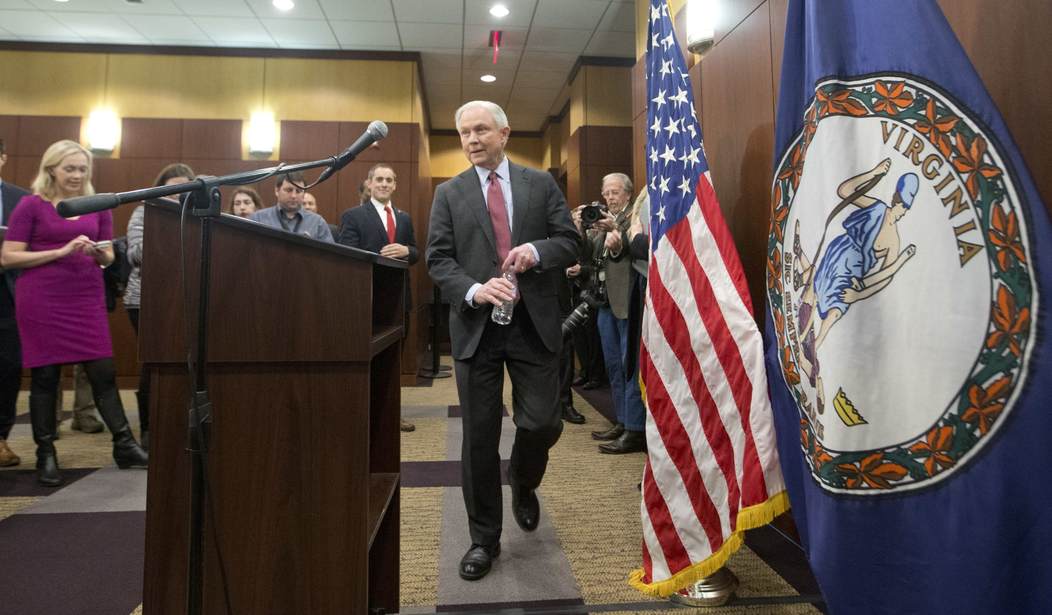Attorney General Jeff Sessions warned federal and state law enforcement officers in Richmond, Va., this morning that recent spikes in violent crime threaten to take the country back to the “dark time” of the 1970s.
Sessions acknowledged that “overall, crime rates in our country remain near historic lows.”
“Murder rates are half of what they were in 1980. The rate of violent crime has fallen by almost half from its peak,” he said, adding “hundreds of thousands of Americans are alive today as a result” of four decades of “great victories against crime in America.”
“The latest FBI data tell us that from 2014 to 2015, the violent crime rate in the U.S. increased by more than 3 percent — the largest one-year increase since 1991. The murder rate increased 10 percent — the largest increase since 1968. And all of this is taking place amid an unprecedented epidemic of heroin and opioid abuse,” the attorney general continued. “If this was just a one-year spike in violent crime, we might not worry too much. But the preliminary data for the first half of 2016 confirmed these trends.”
Sessions said he fears “this surge in violent crime is not a blip, but the start of a dangerous new trend.”
First, he said, a task force including the FBI, ATF, DEA and U.S. Marshals will be focusing on violent crime through the newly formed Department of Justice Task Force on Crime Reduction and Public Safety.
Second, the attorney general wants a new focus on federal firearms prosecutions.
“This Department of Justice will systematically prosecute criminals who use guns in committing crimes,” he said. “Last week, I sent a memo to all our federal prosecutors, urging them to work closely with their federal, state, and local law enforcement partners to target the most violent offenders in their districts. Working together, we will determine which venue — federal or state — would best take these criminals off our streets immediately, and ensure they are properly punished for their crimes.”
Third, Sessions said, “our nation is in the throes of a heroin and opioid epidemic,” which must be combated with “criminal enforcement, treatment and prevention.”
“I realize this may be an unfashionable belief in a time of growing tolerance of drug use. But too many lives are at stake to worry about being fashionable. I reject the idea that America will be a better place if marijuana is sold in every corner store. And I am astonished to hear people suggest that we can solve our heroin crisis by legalizing marijuana — so people can trade one life-wrecking dependency for another that’s only slightly less awful. Our nation needs to say clearly once again that using drugs will destroy your life,” he said.
“In the ’80s and ’90s, we saw how campaigns stressing prevention brought down drug use and addiction. We can do this again. Educating people and telling them the terrible truth about drugs and addiction will result in better choices. We can reduce the use of drugs, save lives and turn back the surge in crime that inevitably follows in the wake of increased drug abuse.”
The fourth component, said Sessions, is encouraging “proactive policing” despite law enforcement being “unfairly maligned and blamed for the unacceptable deeds of a few bad actors.”
“Too many of our officers, deputies, and troopers believed the political leadership of this country abandoned them,” he said. “Amid this intense public scrutiny and criticism, their morale has gone down, while the number of police officers killed in the line of duty has gone up.”









Join the conversation as a VIP Member